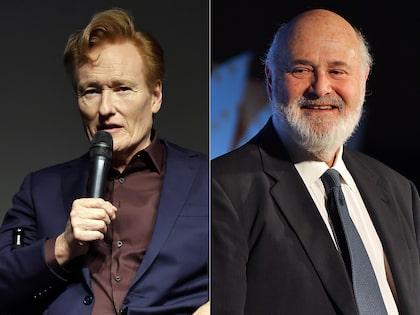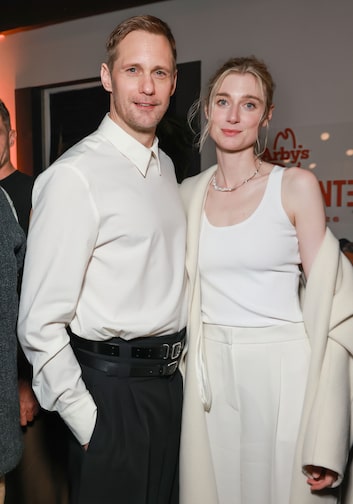Celebrity News July 09, 2021
'Rich Man, Poor Man,' 'Laredo,' 'Meet Me in St. Louis' Actor William Smith Dies at 88
 Getty Images
Getty Images
William Smith, an actor with an impressively diverse 78-year career in Hollywood, died July 5 at the Motion Picture & Television Country House and Hospital in Woodland Hills, California.
His wife, Joanne Cervelli Smith, confirmed his death to THR without providing a cause. He was 88.
Smith, who was best known as a strapping presence in hundreds of films and TV series from the '50s through 2020, actually got his start as a child actor, making him a rare survivor of such Golden Age fare as "The Ghost of Frankenstein" (1942), "The Song of Bernadette" (1943), "Going My Way" (1944), "Meet Me in St. Louis" (1944), "A Tree Grows in Brooklyn" (1945), and "Gilda" (1946).
Born March 24, 1933, in Columbia, Missouri, he enlisted in the Air Force in 1951, boxed, and became a widely published physique model in the '50s, growing 18-inch biceps and stepping into innumerable muscleman roles.
His first credited TV part was on 1954's "Kraft Theatre," and his first credited movie part was in 1959's "The Mating Game," with Debbie Reynolds and Tony Randall.
After he starting working, Smith rarely stopped for a breath. Career highlights include being a regular on "The Asphalt Jungle" in 1961 and embodying henchman Adonis on "Batman" (1968) opposite evil beauty spa owner Minerva (Zsa Zsa Gabor). Around this time, Smith secured one of his most memorable gigs, as Texas Ranger Joe Riley on two seasons of the western series "Laredo" (1965-1967), and was simultaneously TV's last Marlboro Man before President Nixon banned smoking ads in 1970.
He was later a star of the immensely popular miniseries "Rich Man, Poor Man" (1976) and "Rich Man, Poor Man: Book II" (1976 & 1977), playing iconic villain Falconetti, and was also a regular for a year on "Hawaii Five-0" (1979-1980).
Smith's brawn served him well, as in the thriller "Darker Than Amber" (1970), which captured a famously wild brawl between Smith and star Rod Taylor. Smith would later say it was a "real fight with real blood and real broken bones," but no real hard feelings — the men also appeared in "The Deadly Trackers" (1973).
He repeated his moves in "Any Which Way You Can" (1980), in which he and Clint Eastwood performed one of the longest fights ever committed to film — with no doubles.
Smith was also on call as a white heavy in a series of blaxploitation films, including "Hammer" (1972) and "Black Samson" (1974), and had small but high-profile parts as the title character's father in "Conan the Barbarian" (1982) and as a cop in "Rumble Fish" (1983).
It would be hard to think of a popular TV series on which Smith never guested. Among the many to feature him were "The Edge of Night" (1958), "Perry Mason" (1964), "The Alfred Hitchock Hour" (1964), "Wagon Train" (1964), "I Dream of Jeannie" (1968), "Julia" (1971), "Mod Squad" (1969 & 1971), "Columbo" (1972), "Gunsmoke" (1972 & 1975), "The Six Million Dollar Man" (1974), "The Rockford Files" (1974), "Police Woman" (1976), "Fantasy Island" (1978 & 1981), "Nash Bridges" (1999), and countless others, making him a virtual one-man oral history of the medium.
In 2009, the macho man revealed a sensitive side with the book "The Poetic Works of William Smith."
Smith is survived by his wife of 31 years and two children.

























